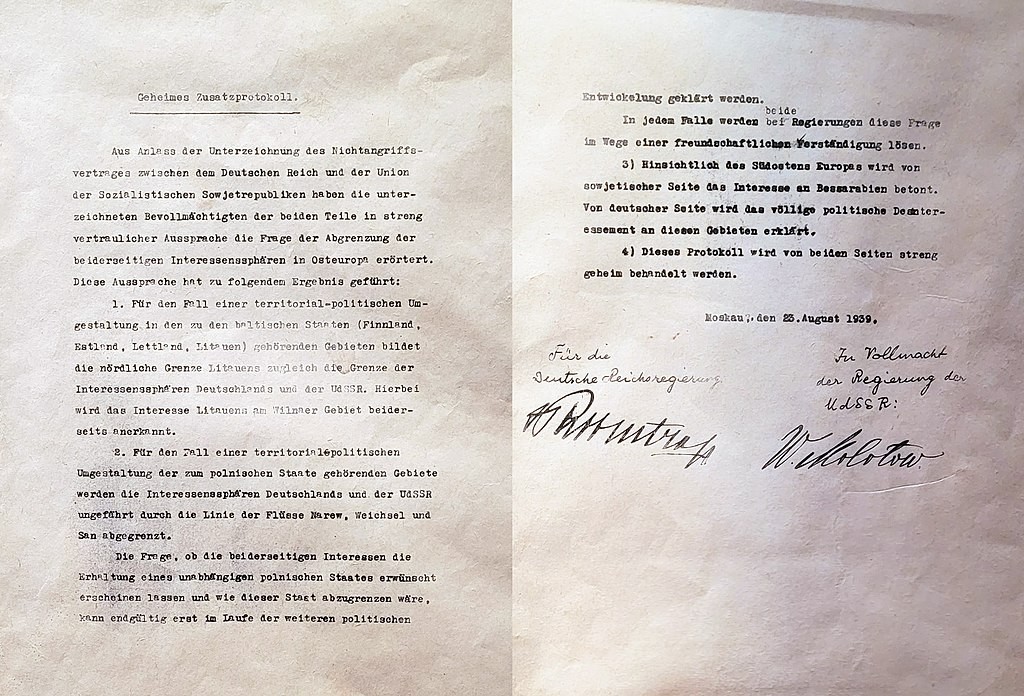The German-Soviet Pact, formalized in Moscow by German Foreign Minister Joachim von Ribbentrop and Soviet Foreign Minister Vyacheslav Molotov, had two main components: a public non-aggression agreement and a secret protocol. The public agreement stated that neither country would attack the other or support third-party aggressors against one another. This part of the pact stunned the world, given the ideological differences between Nazi Germany and the Soviet Union. However, the more consequential aspect was the secret protocol, which detailed the division of Eastern Europe into German and Soviet spheres of influence.
Under the terms of the secret protocol, Poland was partitioned between Germany and the Soviet Union. Germany was allotted western Poland, while the Soviet Union took control of the eastern part of the country. Additionally, the Baltic States—Estonia, Latvia, and Lithuania—were assigned to the Soviet sphere of influence, along with Finland and parts of Romania. This arrangement effectively granted the Soviet Union the right to occupy these territories without German interference.
The impact of the German-Soviet Pact was immediate and profound. On September 1, 1939, Germany invaded Poland from the west, and shortly thereafter, on September 17, the Soviet Union invaded from the east. This coordinated aggression led to the swift defeat of Poland, marking the beginning of World War II. The pact ensured that Germany could focus its military efforts on Western Europe without fearing a Soviet attack from the east.
For the Soviet Union, the pact provided a buffer zone against potential German aggression, allowing it time to strengthen its military capabilities. It also enabled the Soviets to regain territories lost during World War I and expand their influence in Eastern Europe.
However, the alliance was short-lived. On June 22, 1941, Germany violated the pact by launching Operation Barbarossa, a massive invasion of the Soviet Union. This betrayal turned the Soviet Union into one of the Allies fighting against Nazi Germany.
The day of the pact's signing, August 23, is now commemorated as the European Day of Remembrance for Victims of All Totalitarian and Authoritarian Regimes. This day honors the memory of those who suffered under oppressive regimes and serves as a reminder of the importance of protecting democratic values.
